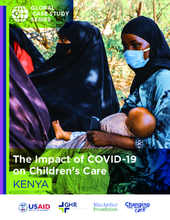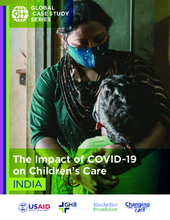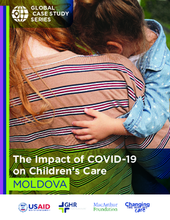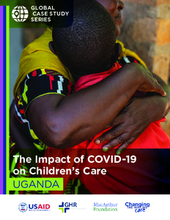Since COVID-19 was declared a pandemic in March 2020, the world has experienced a series of waves and variants of the ever evolving and vaccine eluding COVID-19 virus. Initial responses predominantly focused on slowing the spread of the virus and included movement restrictions, intra-country and inter-country border closings, quarantine, isolation, social distancing, and mask wearing. Whilst these responses aimed to slow the spread of the virus, they also tended to overlook the prioritization of vulnerable populations such as children with disabilities, children in alternative care settings and children who have lost either one of both parents/caregivers due to the virus. In numerous countries, for children in residential alternative care settings the response led to abrupt reunification with families that were - from parenting capacity, psychological and financial perspectives - ill-prepared for their return.
Children who had no families to return to were kept in residential care, many of whom were children with disabilities, and thus, inadvertently exposed to further exclusion and were disproportionately affected by the disruption of essential services and access to education. Research is now estimating that a minimum of 10,512,700 children globally have lost one or both parents, custodial grandparents or other co-residing grandparents to COVID-19 death, compounding the anxiety, uncertainty and fears children face.
Within this evolving context of the pandemic, this series of case studies conducted in India, Kenya, Moldova and Uganda over the course of 2020-2022 shares information on how COVID-19 has and is affecting family-child reunification, alternative care placement, and offers recommendations for family- and community-based care of vulnerable children in the context of COVID-19 and future emergencies.
CTWWC thanks the many partners and organizations who gave time and information to make these publications possible.




